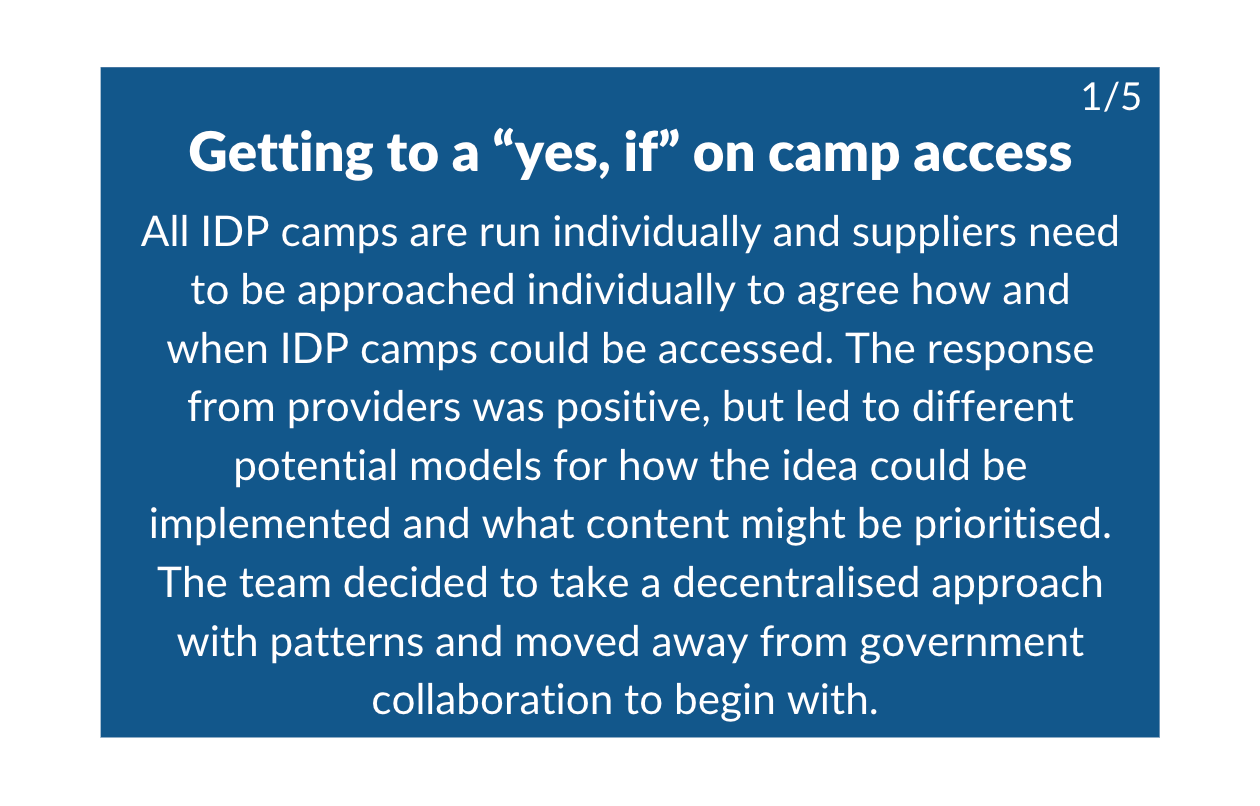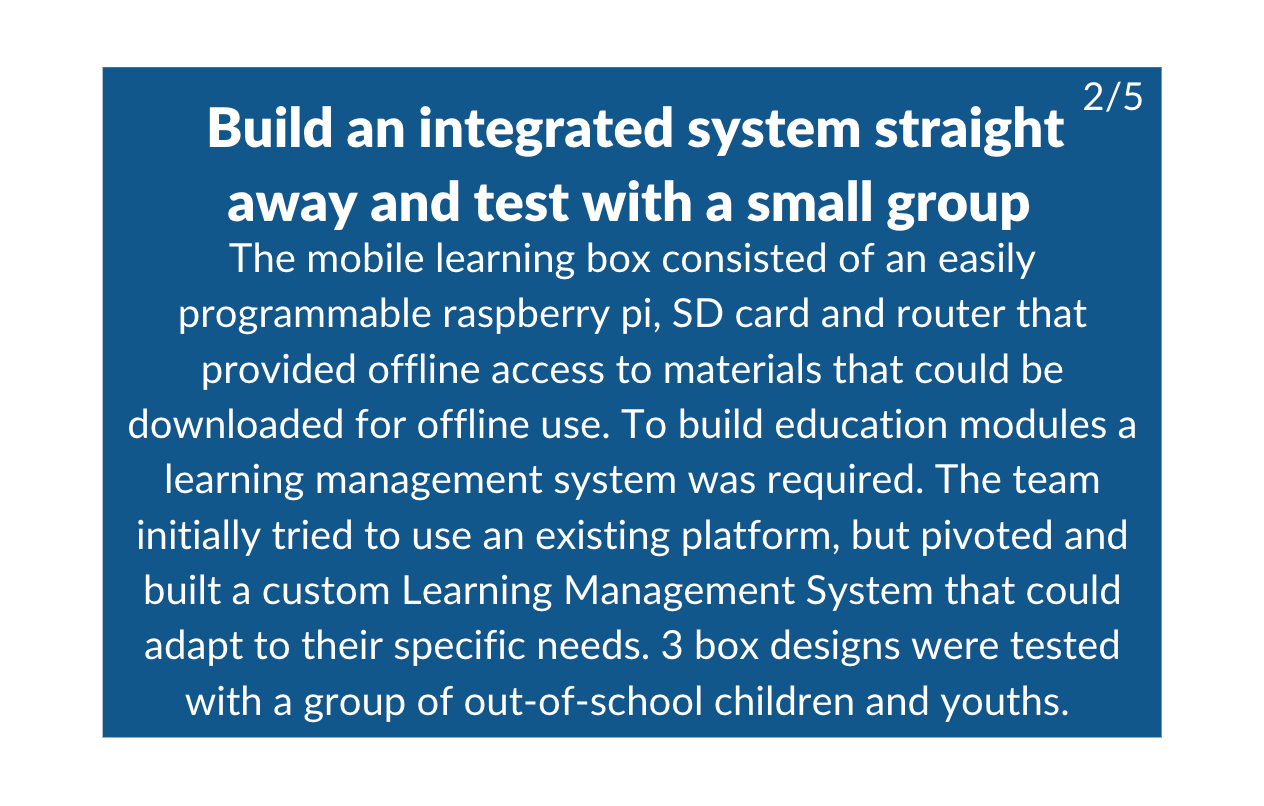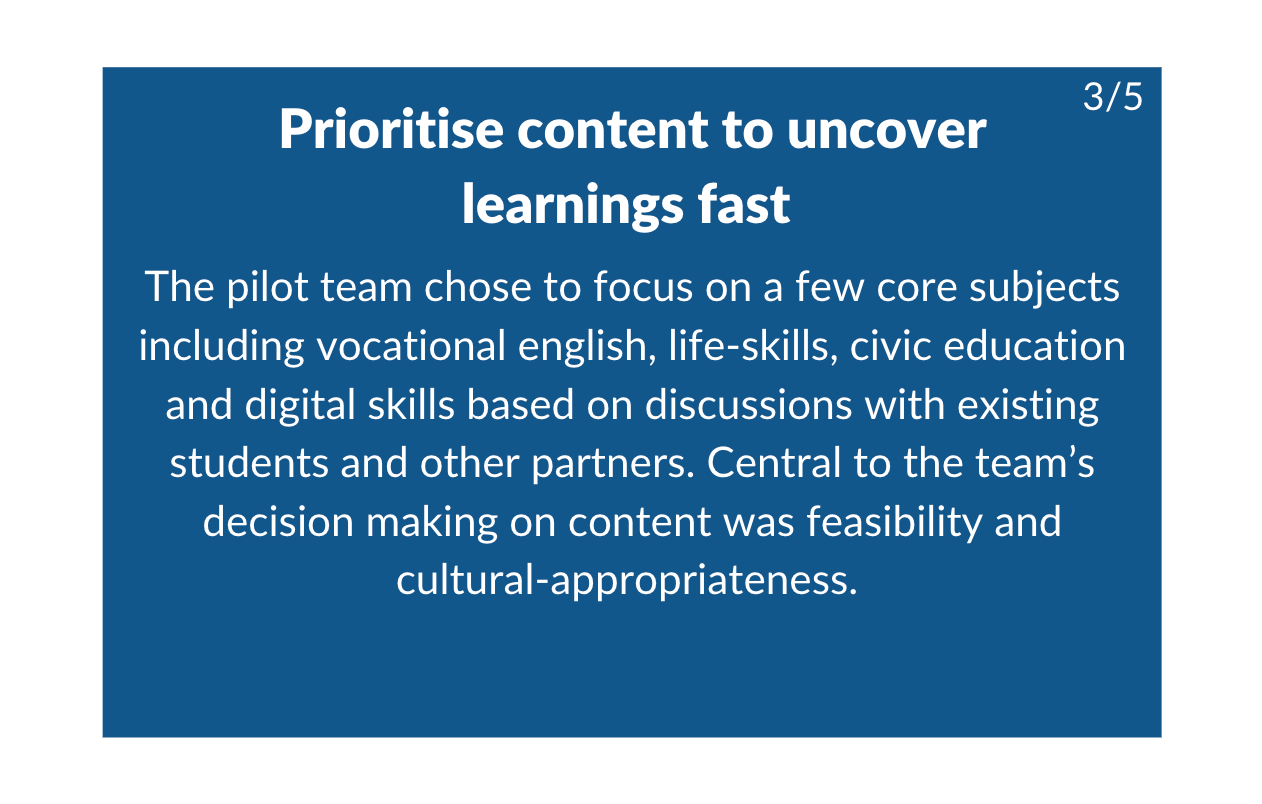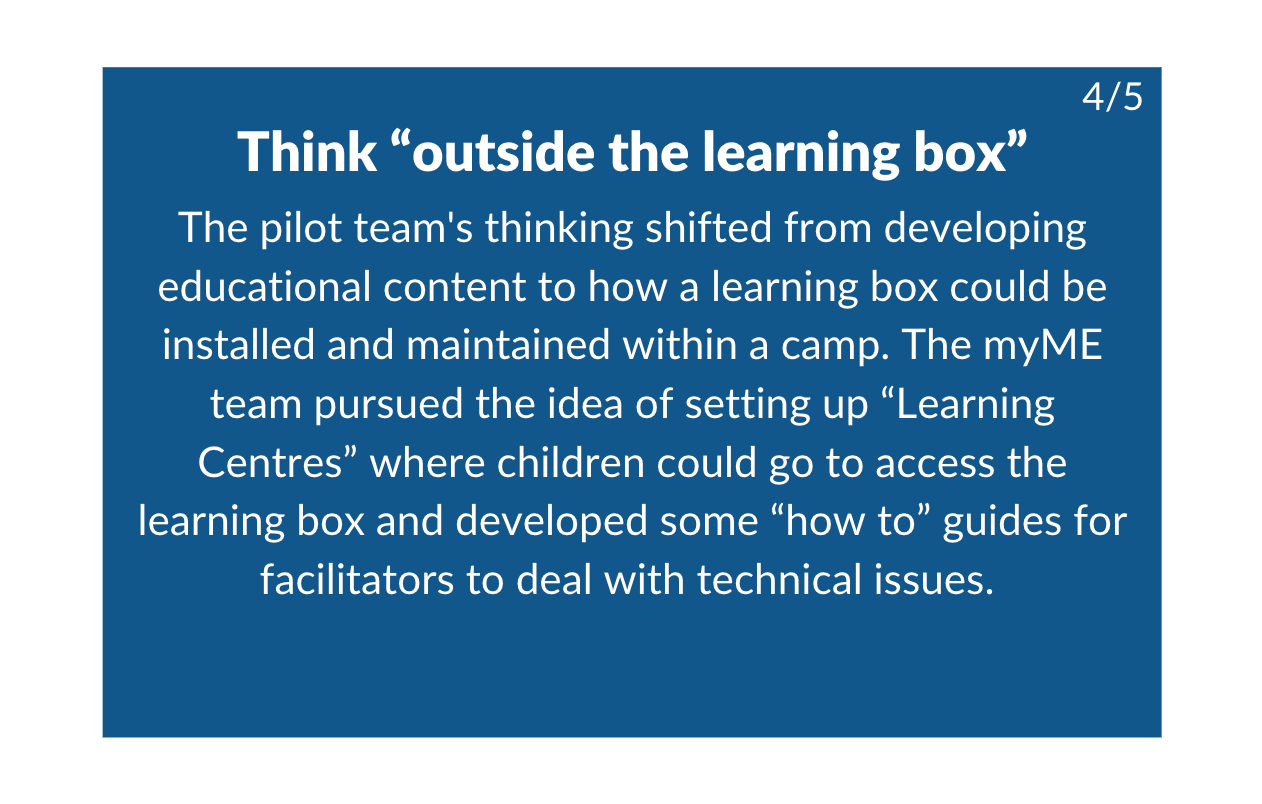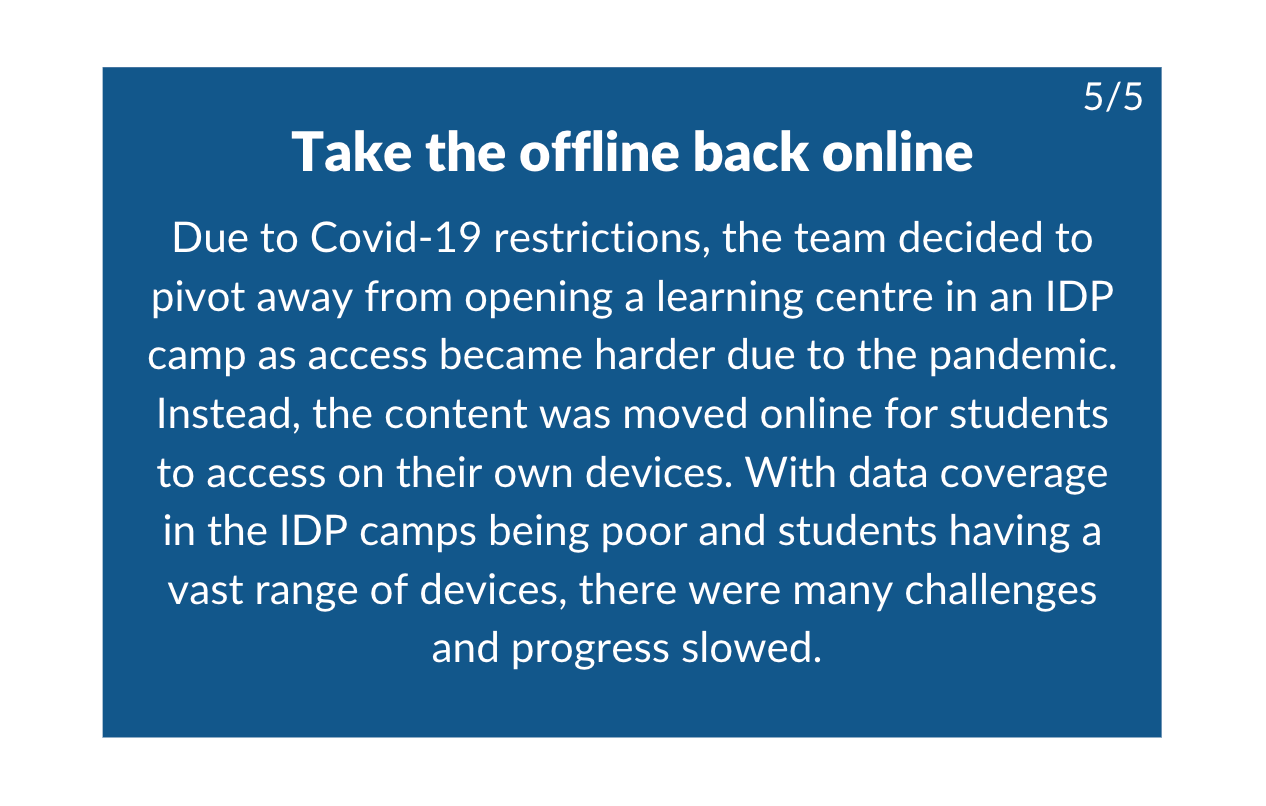Remote education access in Myanmar
THE QUESTION
Can mobile learning boxes provide a means to access education for children in Myanmar’s Internally Displaced Persons (IDP) Camps?
LOCATION: Myanmar
SECTOR: Education
TECH: Frontier Connectivity
TIMELINE: December 2019 - November 2020
PIONEERS: Ian MacAuslan, Khaing Phyu Htut
PARTNERS: Myanmar Mobile Education (myME)
The Challenge
The Rohingya emergency has caused widespread displacement in Myanmar since 2012. As of 2019, 600,000 Rohingya remained in Rakhine state and over 128,000 Rohingya, including thousands of children, have been living in internally displaced persons (IDP) camps since 2012. 20,000 out-of-school children and youths are unable to access informal or formal education within the Rakhine state. Many children have only had access to education in temporary learning spaces run by volunteer teachers, but these spaces only offer learning at the primary school level. Restrictions of movement, which has been exacerbated by the Covid-19 pandemic, have prevented children from traveling to attend post-primary schooling. There are two main challenges here: secondary education is hard to access and any education received will not be formally recognised.
The Idea
This pilot provided low cost “mobile learning boxes” to out-of-school children and youths in IDP camps in Myanmar to test if it would enable multiple students to access educational content simultaneously and download learning materials onto a mobile phone or tablet to use online. The pilot aimed to answer several questions:
Can low cost technology be successfully deployed in remote settings where there is restricted access for delivery and bring learning to life for many who have not had the opportunity to go to school?
Could offline, student-directed learning be used to support better learning outcomes, and could education software help deliver adaptive learning and monitor progress?
Could this innovation help give a foothold into secure employment and greater wellbeing for out-of-school children and youths?
The Journey
What we learned
82% of children at IDP camps completed at least one level of the learning platform and children reported that they found the content useful and enjoyed the self-directed learning. The role of the facilitator in supporting the children with both understanding the content and navigating the platform was key to successful engagement of the technology.
Pre and post assessment scores showed a positive trend in student learning improvement, from 65% to 91%. The most significant learning improvement was in Rakhine State where out-of-school children and youths increased their scores from 36% to 69% despite significant challenges; lack of mobile devices, poor internet connectivity and language barriers. This demonstrates that even with the significant challenges faced in IDP camps, children are willing and ready to learn.
A frugal approach to tech development can leave greater room for customisation. Spending as little as possible on hardware enabled us to dedicate greater resources to customising the front end of the learning management system. This ensured that the user interface was simple and fun for kids to use, which improved their learning.
IDP camps in Myanmar are managed by approximately 40 different service providers, and there is no route to access them all at once through the central government. The most likely route to scale a solution within these camps is to decentralise key aspects of educational delivery.
It is vital to understand the environment and culture when designing educational content to keep momentum and engagement high.
What happened next?
Plan International provided co-funding for mobile phones and other mobile devices for students in the Rakhine state to continue learning through the online platform. The Myanmar Non-Formal Education (NFE) Consortium provided funding to install mobile learning boxes at 30 community centers and NFE classrooms in rural Myanmar. myME is currently working with a number of Education in Emergency (EiE) partner organisations (UNICEF, SAVE, ADRA, NRC) in Myanmar to convert their face-to-face educational courses into digital courses.
All photos on this page were taken by the pilot’s implementing partner, Myanmar Mobile Education (myMe). Read more
Explore the step-by-step journey and learnings of the pilot – Pilot Story


